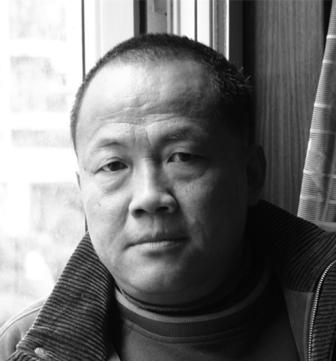Poet
Sun Wenbo

Sun Wenbo
(China, 1956)
Biography
Sun Wenbo 孙文波 was a soldier, factory worker, editor, and then a prominent poet for over twenty years. Along with Zhang Shuguang (1956- ), Wang Jiaxin (1957- ), Xiao Kaiyu (1960- ), and Zang Di (1964- ), who emerged in the 1980s and gained nationwide recognition in the 1990s, Sun Wenbo has played pivotal roles in China’s evolving poetry and poetics over the last quarter of century.Contemporary Chinese poets are writing under the shadow of three traditions: classical Chinese poetry, Western literature, and Chinese New Poetry (free verse) which started in 1917. Many poets consider it their mission to “improve and perfect” the New Poetry. The misty poetry of the 1970s was a revolution against the establishment and the mainstream poetry of “one-party praising” in the 1950s and 1960s. The post-misty poetry in the 1980s was a revolution against the lofty themes of misty poetry, and a promotion of spoken language. Only in the 1990s did Chinese poets begin to really think within poetry itself, trying to make it a form of art. Sun Wenbo was at the forefront of this major poetic force and avant garde practice that has driven Chinese poetry into the silver age – the last twenty years have seen the most interesting poetry in Chinese since the golden age of the Tang dynasty.
Today, Sun Wenbo is the chief editor of Contemporary Poetry, a magazine that has great influence with the younger generation in China. He has also served as editor of the Chinese Poetry Review. He was invited to the Poetry International Festival in Rotterdam in 1996, as well as to many poetry festivals in China in recent years.
His Bicycles from the Sixties (2002) was the first book-length poem (in sequences) about the ‘Cultural Revolution’ in China from personal experience, even though there have been many novels and much non-fiction writing on this ten-year event in contemporary China. Sun Wenbo’s poetic approach to this historical catastrophe has revealed his personal growth (both physical and emotional) with force and grace. ‘Poetry of Nonsense, #2’ is about one morning in his front yard, when he saw snow melting and ebbing from the porch. Some people find this writing clumsy, while others find it transparent. It’s the reasoning process in his writing that makes people blame him for being wordy and “too clear”. But he is never a simple poet. He rejects fragmented imagery in postmodern poetry, and instead tries to build a new prosody, similar to that of the Song Dynasty: opening, development, change and revelation. And he always surprises readers by changing the order of the four steps in order to achieve varied tempos in his poetry. ‘Bland Life, Blunt Poetry’ gives the impression of polyphonic music in which two or more themes proceed simultaneously and independently while echoing each other. The “apple” and “orange”, thrown back and forth, create one ending from two directions, dealing with both social and poetic tyrannies.
© Ming Di
Selected bibliographyTravels Over A Map (Gaige Press, 1997)
Love Songs for Xiaobei (Wenhuayishu Books, 1998)
Poem of Sun Wenbo (People’s Literature Publishing House, 2001)
Bicycles from the Sixties, Poems of Sun Wenbo (New Poetry, 2002)
Regarding Nothing (Chongqing University Press, 2010)
New Nature Poetry (People’s Literature Publishing House, 2012)
Awards
Anne Kao Poetry Prize, 1996
Pearl River International Poetry Festival Prize, 2009
Hainan Changyu Poetry Award, 2010
Poems
Poems of Sun Wenbo
Sponsors
























